
THIS MONTH’S BIBLICAL THEME IS: God is Mighty.
Rahab witnessed the powerful collapse of Jericho’s walls, a testament to God’s power and protection. Gideon, with a small army, experienced God’s guidance leading to a miraculous victory. In Ruth’s story, Boaz’s kindness showed God’s providence amidst tragedy. David, armed with faith and stones, defeated Goliath. These narratives collectively emphasize God’s might in delivering His people, showcasing His strength and faithfulness in every circumstance. God is mighty and powerful!
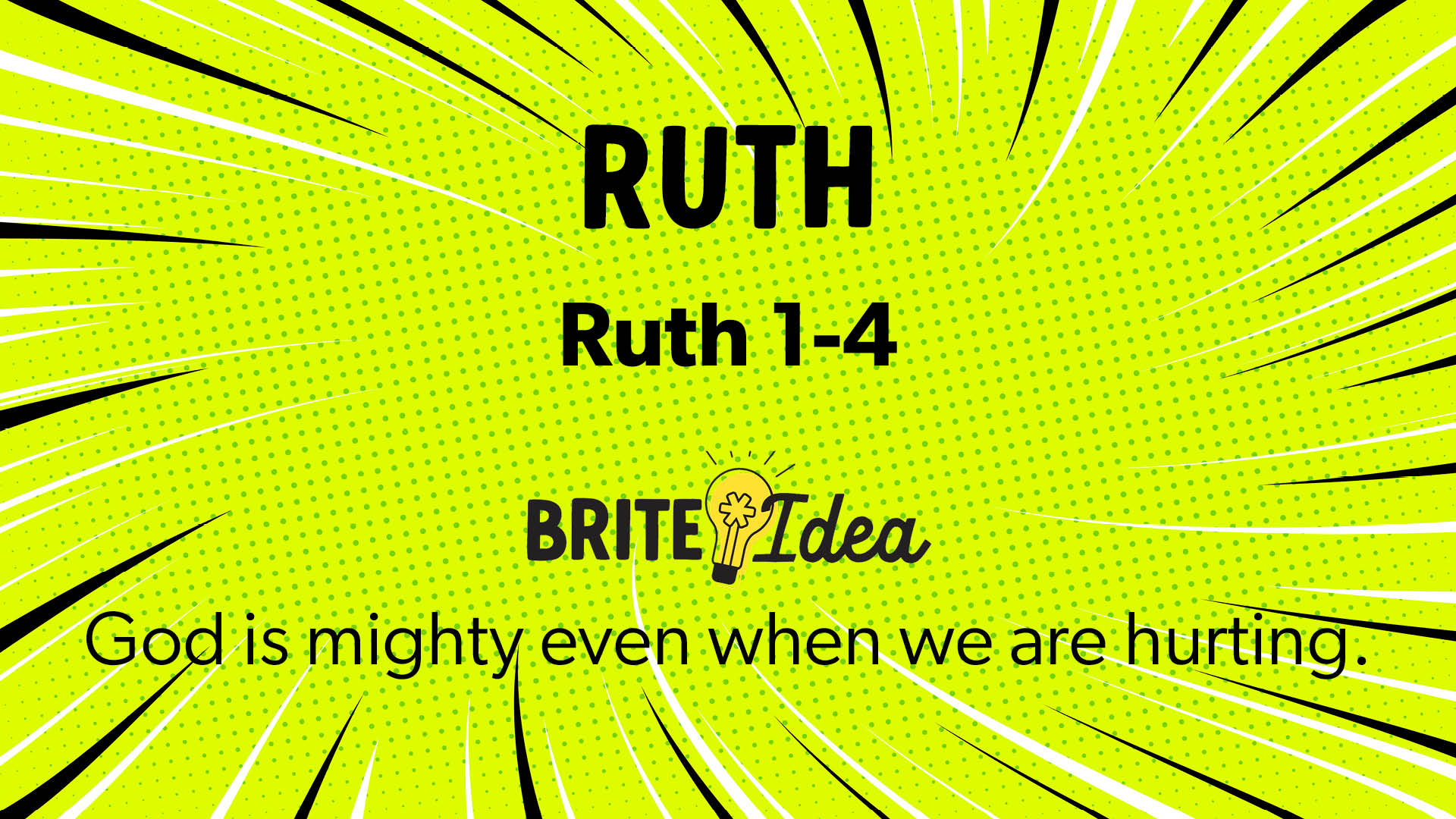
Ruth
Bible Passage: Ruth 1-4
Focus Verses: Psalm 34:18; Hebrews 4:14–16; Matthew 11:28-30; Isaiah 41:10
During the Judges era, famine struck, leading Elimelech to move his family to Moab, where he and his sons died. Left with her sons' wives, Ruth and Orpah, Naomi decided to return to Judah. Orpah left, but Ruth vowed to stay with Naomi. Struggling in Bethlehem, Ruth gleaned in Boaz's field. Boaz, a relative, offered kindness. As a kinsman-redeemer, Boaz married Ruth. They had a son, Obed, bringing joy to Naomi and highlighting God's provision through their story.
Obed would have a son, who would have a son, who grew up to be King David. Then, many generations later, Obed’s family would include Jesus. Not only did God help Ruth and Naomi in their pain, but He used their family to one day bring Jesus into the world. Jesus is the only one who can give us hope from death, which is the most hurtful of all things. Because He died and rose again, Jesus gives us the hope of heaven. He is mighty even when the world around us is hurtful.
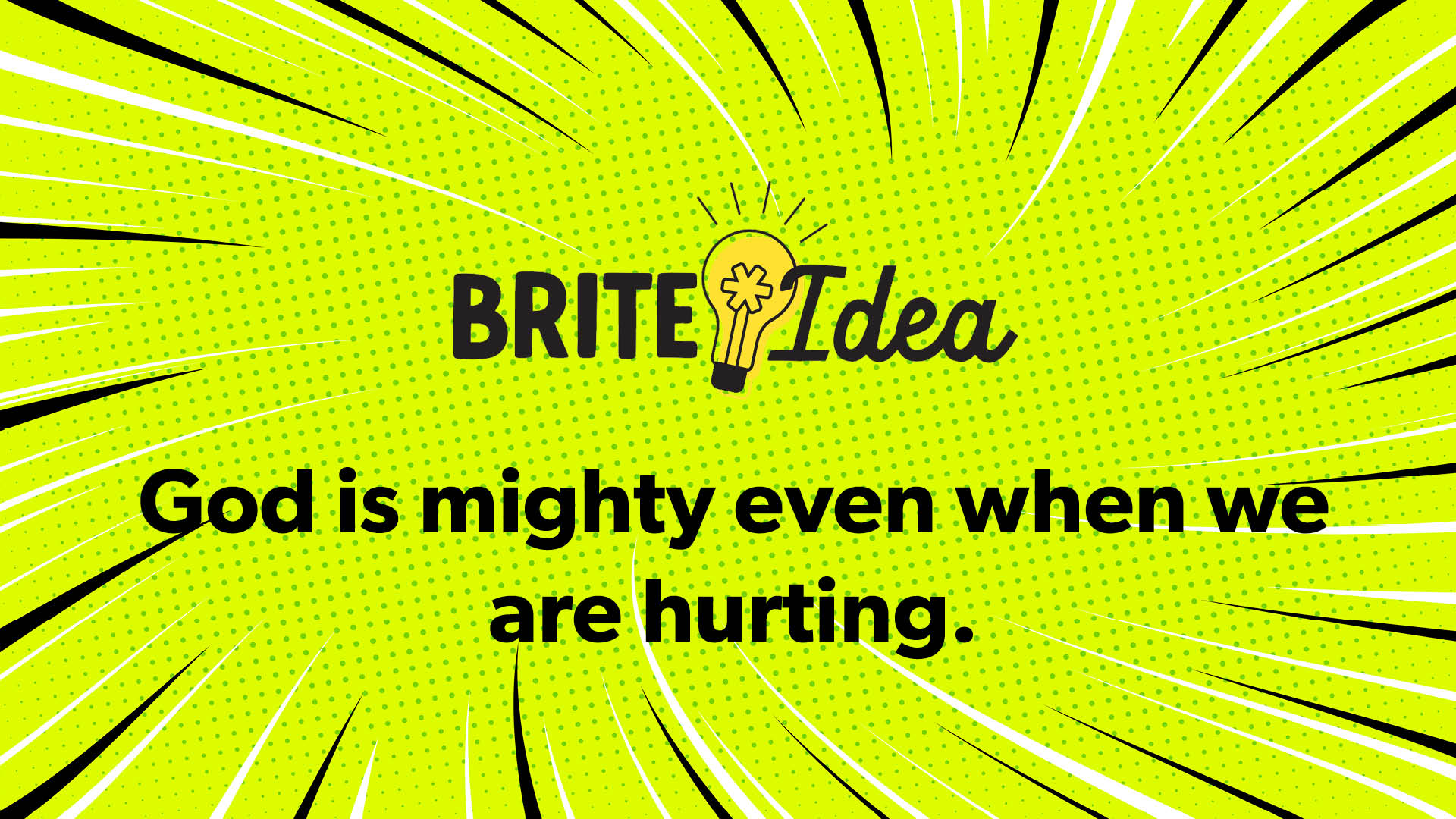
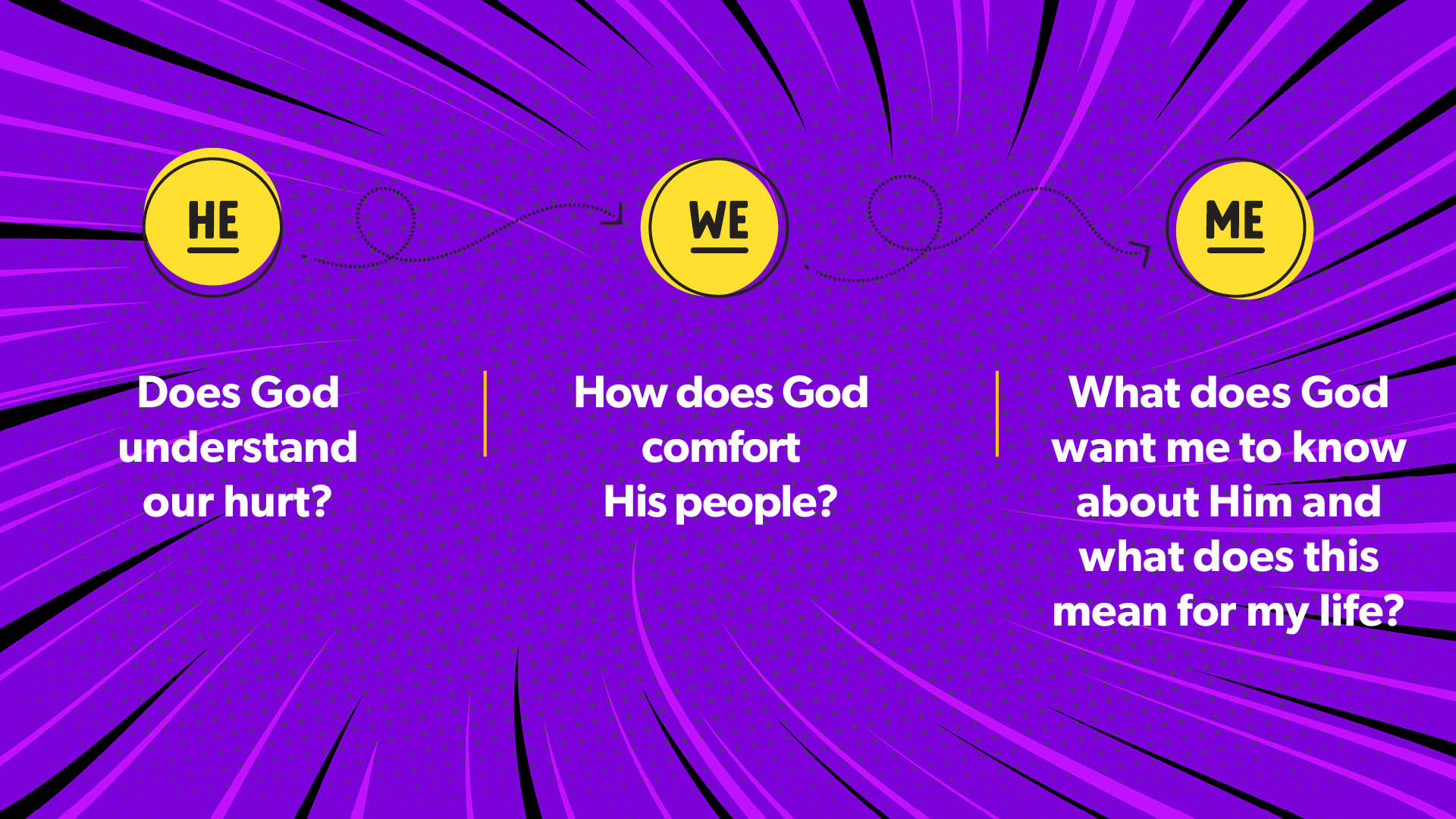
Does God understand our hurt? God created us and our emotions. Jesus experienced hurt and temptation, making it possible for Him to understand us. God is not far away from our pain. He is mighty enough to understand and be with us.
How does God comfort His people? God is with His people when they are hurting. He gives peace and strength. He also promises eternity with Him where there will be no more hurt.
What does God want me to know about Him, and what does this mean for my life? Ask your child this question, answers will vary.
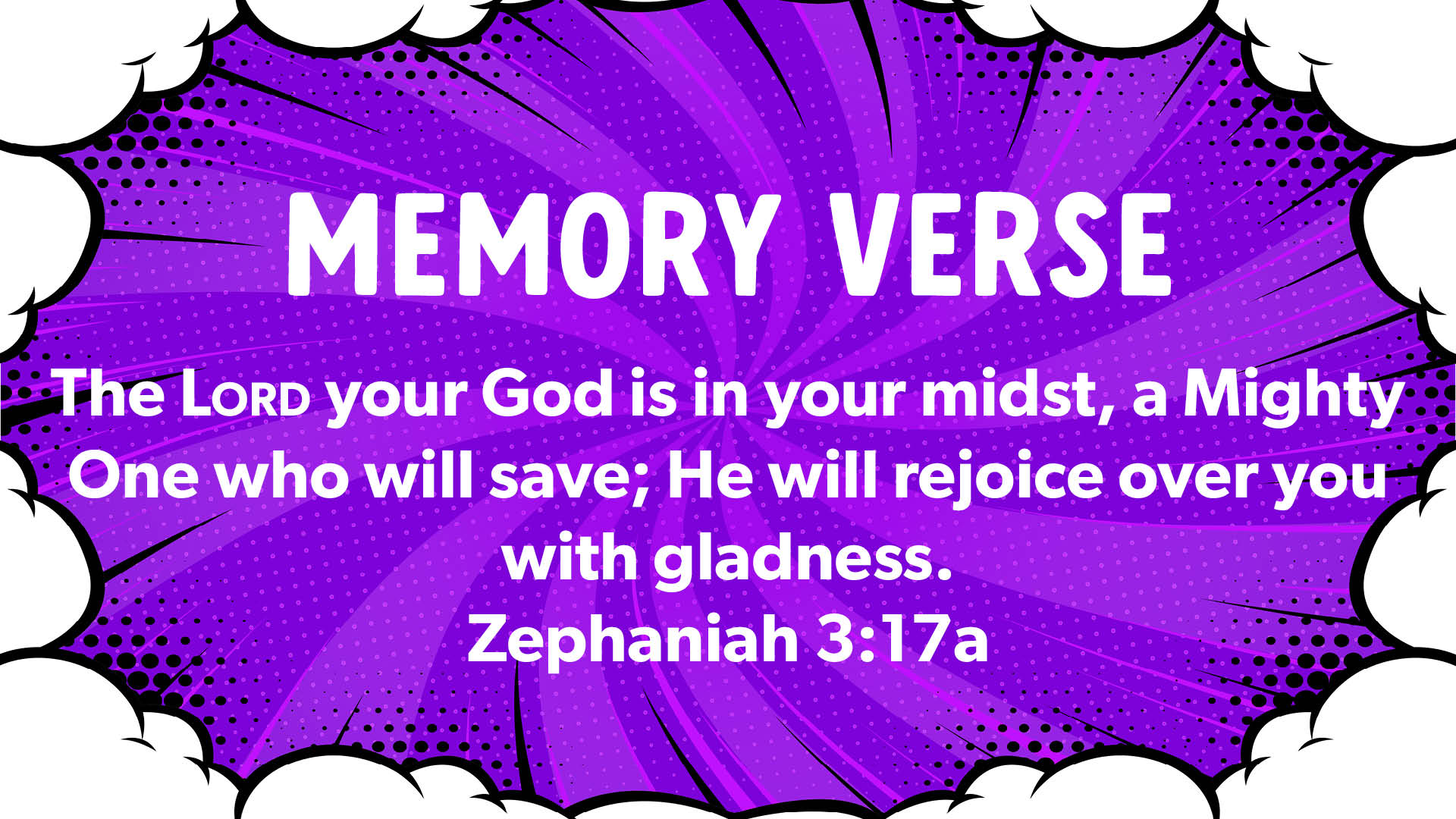
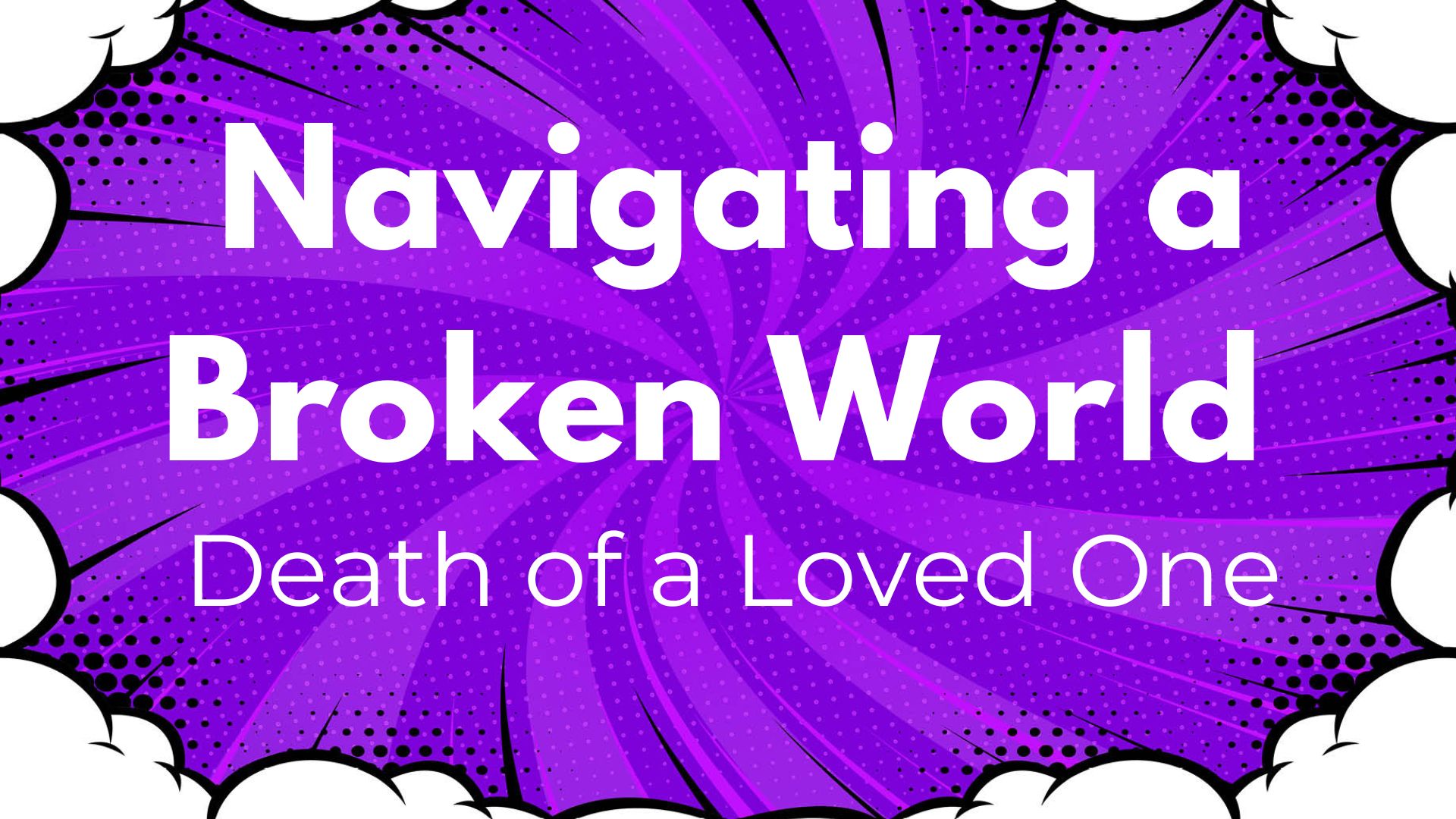
As many as 20 percent of kids lose a loved one before they turn 18.* Grief may show up in kids’ emotions, their behavior and how they interact with others. Grief can greatly affect kids’ spiritual walk as they struggle to understand why God would allow such pain. Platitudes, such as “Your dad is in a better place” or “This was just God’s plan,” usually hurt kids more than they help. Sometimes the most helpful thing we can do is simply say, “I’m so sorry” and sit with kids in their grief and pain, gently reminding them that God has never left their side. In this week’s lesson, kids learned that when sad things happen, God is with them. We don’t have to explain to kids why they lost loved ones but rather point them to the truth of what we know about God. He is always with them when they are hurting the most.
Here’s how we discussed this topic and how you can discuss at home:
Discuss: Can you think of a movie or a book where a kid experienced the death of someone they loved?
Discuss: What feelings might someone have if someone they loved died?
Discuss: What does God have to say about that?
Say: You may have heard someone say if God was real, people we loved wouldn’t die. What does God have to say about that? Everyone dies eventually. Death was not part of God’s original design but came as a result of Adam and Eve’s sin. The world is so broken that living forever on earth would be terrible. When someone believes in Jesus, dying allows them to go to heaven where there is no pain or sadness or sickness. However, it is very painful for those of us who are left behind. When we lose someone we love, we can know God is very near to us. It’s okay to be sad. It’s okay to cry. It’s okay to be angry. We can talk to God and we can talk to adults we trust about how we are feeling.